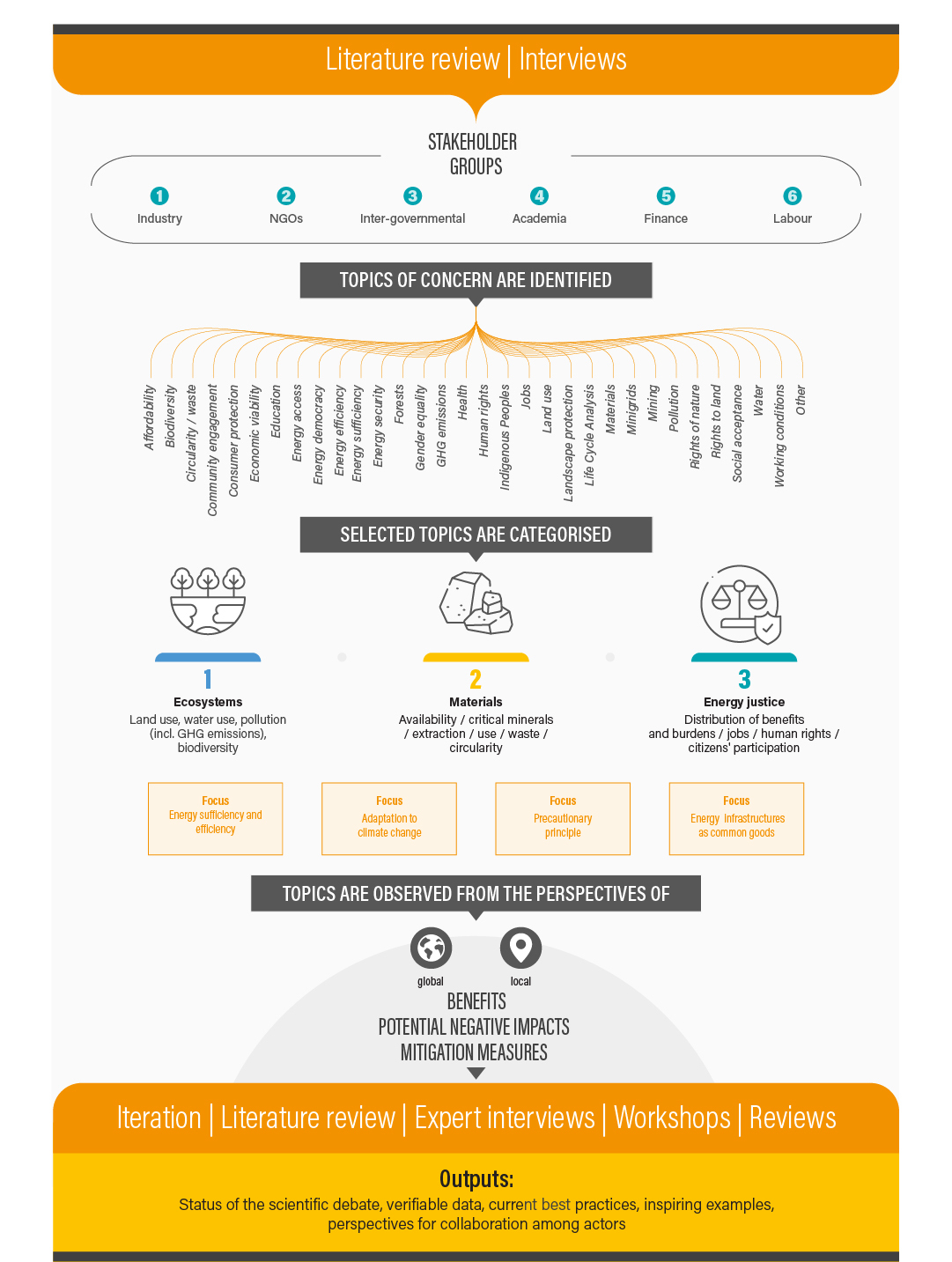The REN21 Renewables and Sustainability Report (RESR) builds on a yearlong research and consultative process among a wide range of stakeholders across sectors. It was conceived as a reference document bringing together different perspectives to analyse the benefits and identify the best practices to mitigate the potential negative impacts of renewables deployment. The report concludes that the environmental impact of renewables is significantly lower than any other energy source and can be mitigated with the adoption of existing best practice. The report also underscores the wide range of benefits of renewables on climate change, air, water and land pollution, biodiversity, human health, energy access and energy security and job/local value creation.
Sustainability: The importance of diverse perspectives
The nature and scale of the resource demands and environmental impacts associated with energy provision and infrastructure are context-specific and vary depending on a range of factors, including the technology in question, the deployment method and the location. Generic statements overlook these specificities and oversimplify complex realities. Assessing the environmental and social sustainability of renewables is complex. It requires a holistic approach and comprehensive data from diverse sources.
To reflect these diverse perspectives and realities, it is essential to use a crowd-sourced, multi-stakeholder-based approach to build trusted evidence and a common ground of understanding about the energy transition.
ARE RENEWABLES SUSTAINABLE? THREE KEY TAKEAWAYS FROM THE REPORT
Key message 1: Renewables make the world more sustainable
Key message 2: Compared to other energy sources, renewables bring clear benefits
Key message 3: The potential negative impacts of renewables can be mitigated
WHAT OUR COMMUNITY HAS TO SAY ABOUT THE RENEWABLE ENERGY AND SUSTAINABILITY REPORT
Ute Collier, Acting Director Knowledge, Policy and Finance Centre, IRENA: “The RESR provides decision-makers with a recipe for putting sustainability and equity at the heart of the renewables-based energy transition.”
Caroline Avan, Business & Human Rights Resource Centre: “The involvement of all relevant stakeholders in planning processes, and especially those potentially affected by the deployment of new infrastructure, is key to ensure that the benefits of the energy transition are equitable.”
Rachel Asante, International Union for Conservation of Nature: “Governments have an important responsibility to enact and enforce policies and regulations that ensure the deployment of renewables in a sustainable way.”
Stephan Singer, Senior Global Specialist, Climate Science and Energy, CAN International: “It has been shown that renewables on average have much higher benefits to the environment, climate, social systems, resource consumption, and the economy as such compared to fossil fuels and nuclear power.”
Koaile Monaheng, Expert on Renewable Energy for the Global Platform of Action, Climate Action Network International: “The vulnerability of the renewable sector to rising interest rates particularly in emerging and developing economies not only hampers the expansion of renewables it also compromises a just energy transition in these countries. Improvements in financing conditions are crucial to ensuring their success.”
REPORT PRODUCTION PROCESS: HOLISTIC APPROACH AND MULTISTAKEHOLDER CONSULTATION

